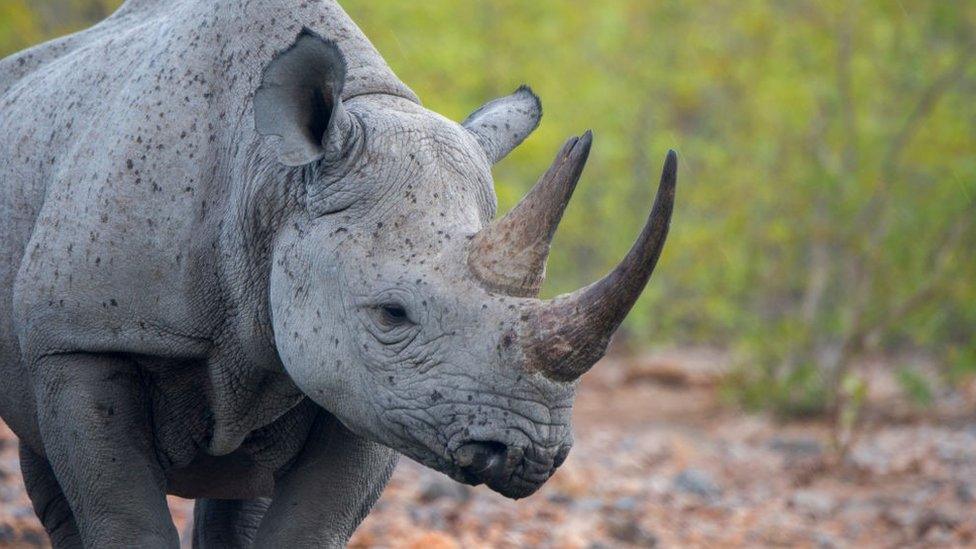Chester Zoo celebrates critically endangered eastern black rhino birth
- Published
A rhino's daytime arrival gives keepers a rare chance to catch a birth on camera.
The birth of "one of the world's rarest mammals" will help efforts to prevent an endangered species from disappearing, zoo experts have said.
Chester Zoo said Zuri, one of its eastern black rhinos, gave birth to a female calf on 12 November.
It said the daylight birth was "quite unusual" and had allowed keepers to capture the moment on camera.
Rhino team manager Emma Evison said witnessing the calf's arrival was "just the most incredible privilege".
The zoo said the species was listed as critically endangered, with fewer than 600 of the rhinos remaining in the wild across Kenya, Tanzania and Rwanda.
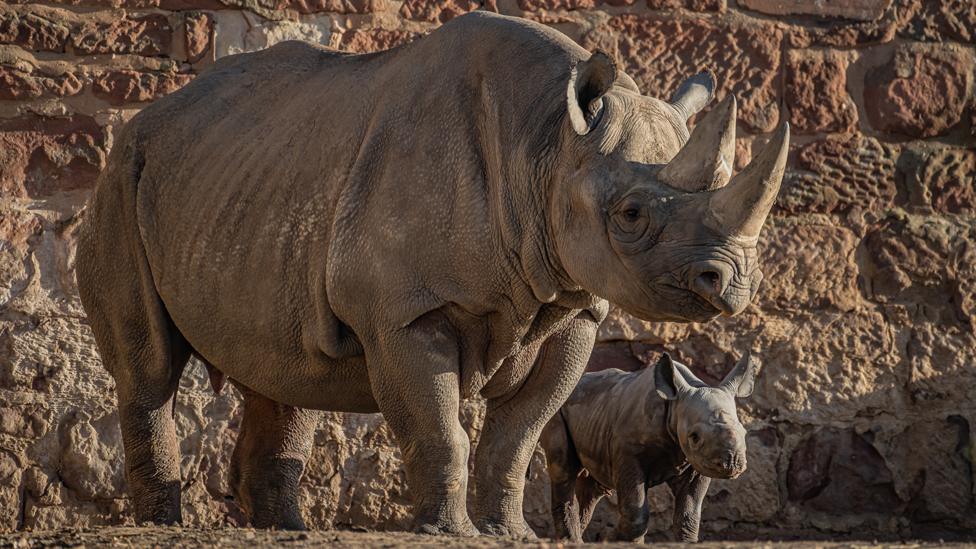
Ms Evison said the pair had been "inseparable" and the calf was already gaining "in size and weight"
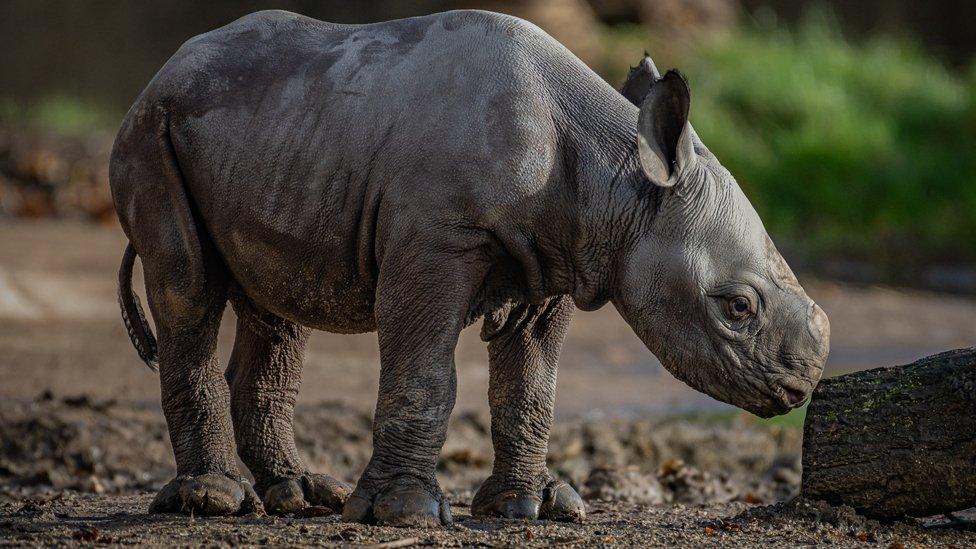
She said it was now important the pair "spend some time bonding and getting to know one another"
A representative said the illegal trade in rhino horn had seen about 95% of Africa's rhinos wiped out by poaching.
However, they said new figures released earlier in the year had shown that for the first time in more than a decade, rhino numbers had increased slightly across Africa.
Ms Evison said the eastern black rhino was "a species that, for more than century, has been hunted down and poached for its horn".
"This precious newborn's arrival is another positive step in safeguarding the species," she said.
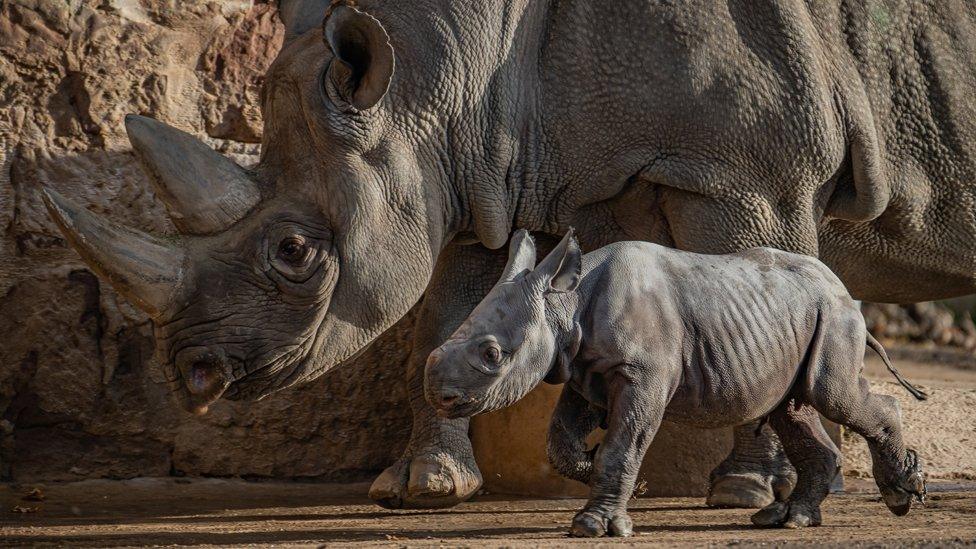
Ms Evison said the eastern black rhino was "a species that... has been hunted down and poached"
She said it was now important that Zuri and the calf "spend some time bonding and getting to know one another".
"So far, the pair have been inseparable and the little one is feeding regularly and already gaining in size and weight."
She added that the calf was "very inquisitive and full of energy", which was "just brilliant to see".
Mike Jordan, the zoo's director of animals and plants, said the pair were "testament to the unwavering dedication of conservationists here at Chester, and around the world, who are working to safeguard these incredible animals and ensure that they thrive long into the future".

Why not follow BBC North West on Facebook, external, X, external and Instagram, external? You can also send story ideas to northwest.newsonline@bbc.co.uk
- Published5 September 2023
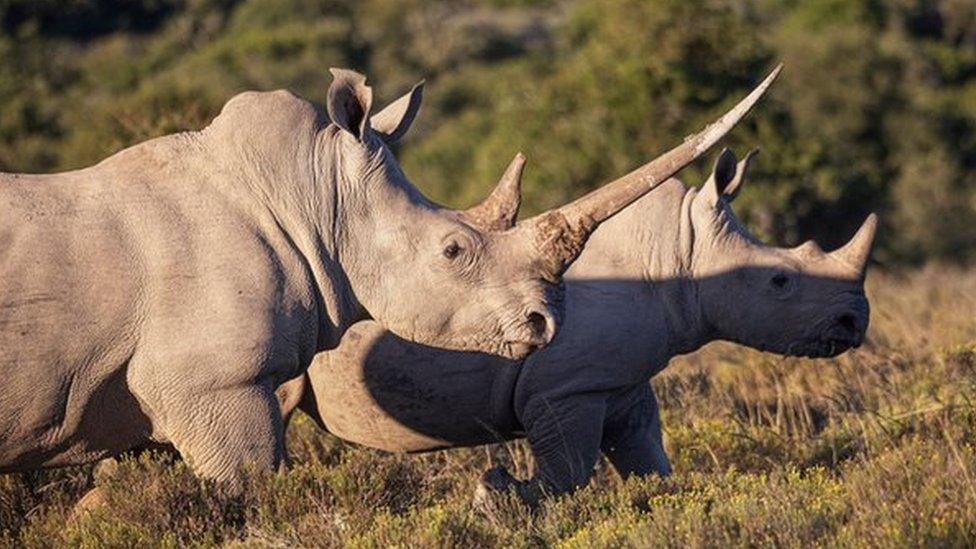
- Published25 August 2023
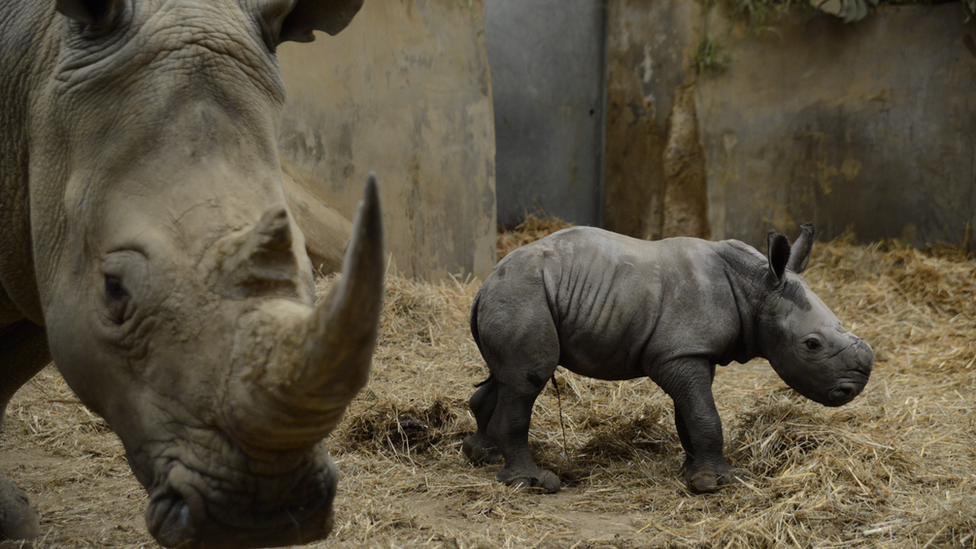
- Published31 January 2023
